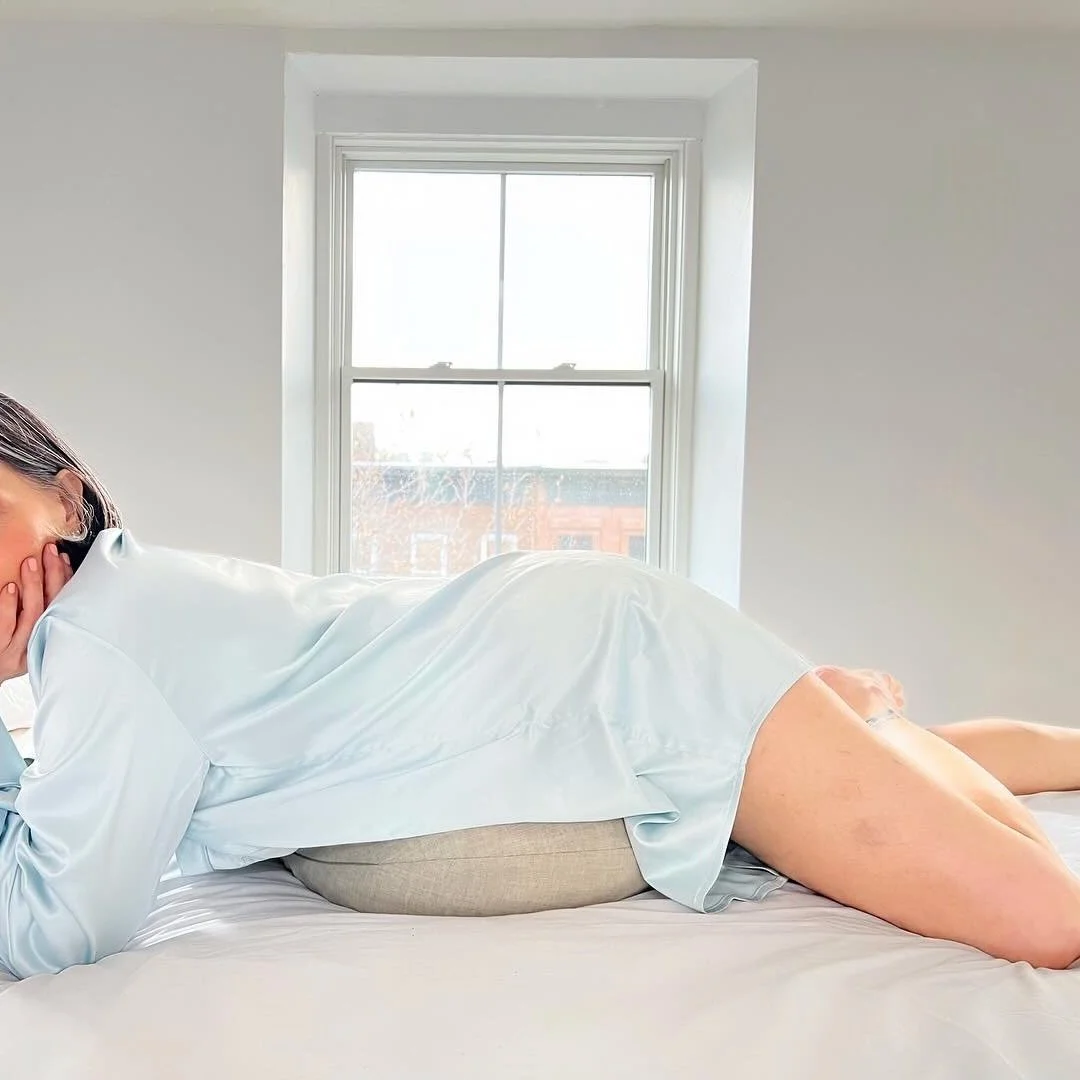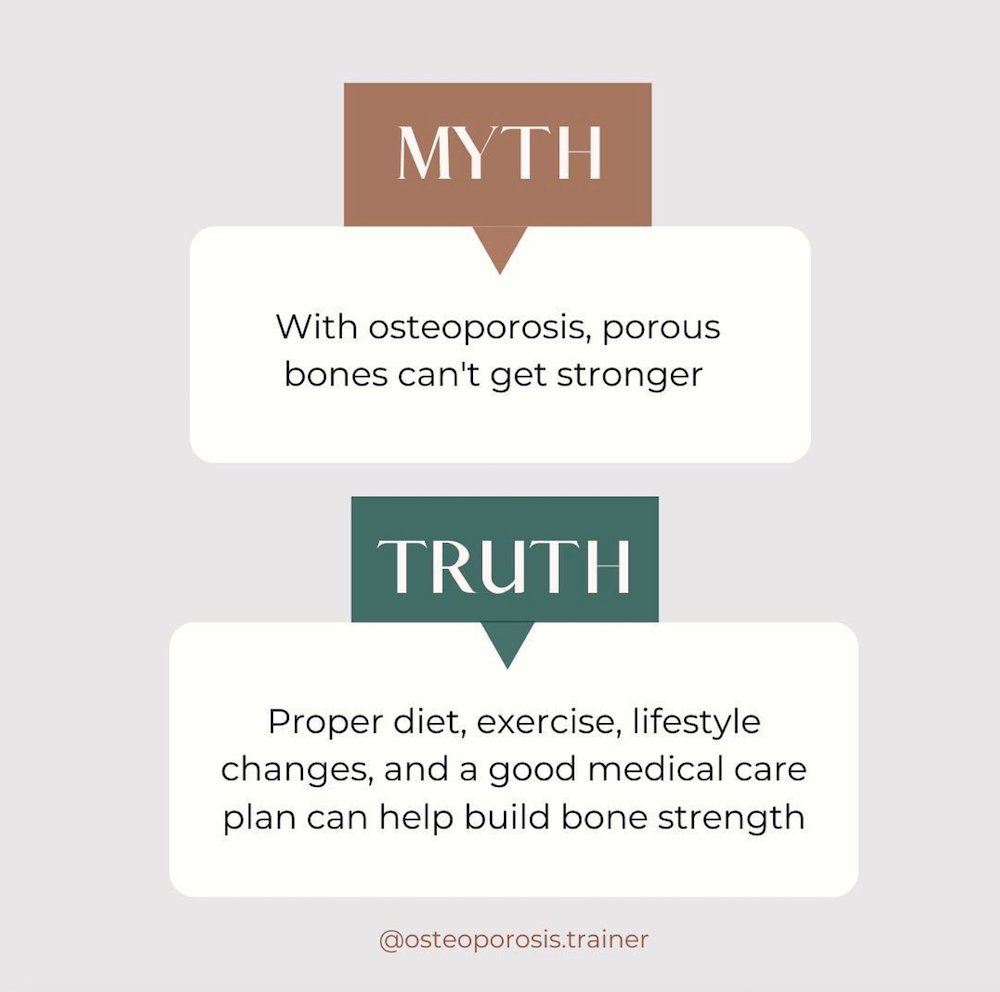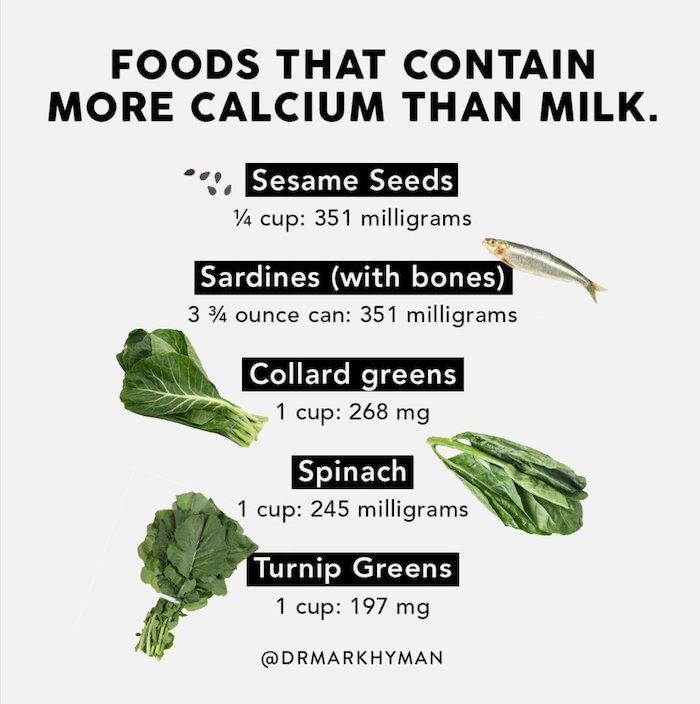What Do I Need To Know About Bone Density As A Woman Over 35?
by The Candidly Team
If you grew up in the glory days of the milk commercial, sometime between a scrawny tween turned blond bombshell telling you “it does a body good” and a minimalist font on a black backdrop asking you if you “got” it, then this article is for you.
Because if either of these references mean anything to you, you might be at an age where you’re feeling the effects of the things milk promised to protect against. Things like bone loss, which you might not be “feeling” yet but could still be experiencing.
But before you start sweating, as one naturally does any time they hear terms like "silent disease,” read this article. Because while it’s true that many women aren’t fully educated on bone density until they already have osteoporosis, there are answers to your questions (and your low-key anxiety). There are signs you can look out for and bone-strengthening steps you can take.
And to get those answers, we called upon the expert OBGYN and creator of The Galveston Diet, Dr. Mary Claire Haver, who illuminated the topic with actionable ideas and in words we actually understand/ care about.
And don’t worry, contrary to what 80s dairy campaigns would have you believe, it’s not all about milk.
1. Why does bone density matter? And why should we care about it?
Bone density refers to the amount of minerals, such as calcium and phosphorus, that are present in our bones. It’s an important indicator of bone strength and health.
It matters because low bone density can lead to a condition called osteoporosis, which is a disease in which bones become brittle and fragile, increasing the risk of fractures and other bone injuries.
As we age, our bones naturally become less dense, but some people experience a greater loss of bone density than others.
Maintaining healthy bone density is important for several reasons:
1. It can help prevent osteoporosis and reduce the risk of bone fractures, which can be debilitating and even life-threatening in some cases.
2. Strong bones support good posture, balance, and overall mobility, which can improve quality of life and reduce the risk of falls and other accidents.
2. What are the prime factors affecting bone density in women?
There are several factors that can affect bone density in women. Some of the most significant ones include:
Age: As women age, their bone density tends to decline naturally, particularly after menopause when estrogen levels decrease.
Hormones: Hormonal changes can have a significant impact on bone density. Estrogen, in particular, plays an important role in maintaining bone density, and women who experience early menopause or have their ovaries removed are at increased risk of developing osteoporosis.
Genetics: Family history and genetics can also play a role in bone density. Women with a family history of osteoporosis may be at increased risk of developing the condition themselves.
Nutrition: Adequate calcium and vitamin D intake are important for maintaining bone health. Women who consume insufficient amounts of these nutrients may be at increased risk of developing osteoporosis.
Lifestyle Factors: A sedentary lifestyle, smoking, excessive alcohol consumption, and low body weight can all contribute to lower bone density in women.
Medical Conditions: Certain medical conditions, such as celiac disease, hyperthyroidism, and some autoimmune disorders, can also affect bone density.
3. A lot of sources say you won't be able to tell your bones are losing density until you essentially have arthritis. Are there any hidden clues women can look out for that might indicate their bone density isn't where it should be?
It is true that osteoporosis, a condition characterized by low bone density and increased risk of fractures, is often referred to as a "silent disease" because it can progress without symptoms until a fracture occurs. However, there are some subtle clues that women can look out for that may indicate lower than normal bone density. Here are a few examples:
Height loss: Women with osteoporosis may experience height loss due to vertebral compression fractures.
Back pain: Vertebral compression fractures can also cause back pain or a stooped posture.
Receding gums: Bone loss in the jaw can lead to receding gums or loose teeth.
Weak or brittle nails: Some studies have suggested that weak or brittle nails may be associated with lower bone density.
Fractures: Women who experience fractures from relatively minor incidents, such as a fall from standing height, may be at increased risk of osteoporosis.
A family history of osteoporosis: Women with a family history of osteoporosis may be at increased risk themselves.
These clues are not definitive indicators of low bone density and should not be used to self-diagnose. If you’re concerned about your bone health, it’s important to speak with your doctor and discuss your risk factors and whether bone density testing is recommended.
4. What if we were "bad" about taking the necessary steps to care for our bone health in our younger years? Are there still things we can do to improve or maintain our bone density?
It’s never too late to start taking steps to improve or maintain bone density, even if you may not have been as proactive about bone health in your younger years. Here are some of the most crucial things a woman over 35 can do right away to either halt or reverse damage to her bones:
Get enough calcium and vitamin D: Adequate calcium and vitamin D intake are crucial for maintaining bone health. You can increase your intake of these nutrients through a healthy diet or supplements.
Engage in weight-bearing exercise: Regular weight-bearing exercise, such as walking, jogging, dancing, or weightlifting, can help maintain bone density and strength. Aim for at least 30 minutes of weight-bearing exercise most days of the week.
Quit smoking: If you smoke, quitting can help improve your bone health and overall health.
Limit alcohol intake: Excessive alcohol consumption can also negatively affect bone health. If you drink alcohol, aim to do so in moderation.
Talk to your doctor: If you have concerns about your bone health, talk to your doctor about whether bone density testing or other screenings are recommended. Your doctor may also be able to provide guidance on lifestyle changes or medications that can help improve bone health.
Consider medications: If your bone density is already low, your doctor may recommend medications to help slow down or reverse bone loss. Medications such as bisphosphonates, hormone therapy, or selective estrogen receptor modulators (SERMs) may be prescribed.
Remember that making changes to improve bone density may take time and consistent effort, but the benefits can be significant and may help reduce the risk of fractures and other bone injuries in the future.
5. Are we eating anything (or not eating things) that affect our bone density and how do we change that?
Yes. Here are some dietary factors that can affect bone health and some suggestions for how to change them:
Calcium intake: If you're not getting enough calcium in your diet, your body will take it from your bones, which can lead to bone loss. It's recommended that adults under the age of 50 get 1,000 milligrams of calcium and 600-800 international units of vitamin D per day, and adults over the age of 50 get 1,200 milligrams of calcium and 800-1,000 international units of vitamin D per day. Good sources of calcium include dairy products, leafy green vegetables, and fortified foods such as cereals and orange juice.
Vitamin D intake: Vitamin D is necessary for the absorption of calcium. Your body can make vitamin D when your skin is exposed to sunlight, but many people don't get enough sunlight or vitamin D in their diet. Good food sources of vitamin D include fatty fish, egg yolks, and fortified foods such as milk and cereal. Vitamin D supplements may also be recommended if you're not getting enough through diet and sunlight exposure.
Protein intake: Adequate protein intake is also important for bone health. Protein is necessary for the formation of bone tissue. Good sources of protein include lean meats, poultry, fish, beans, and tofu.
Sodium intake: High sodium intake can increase calcium loss in the urine, which can lead to bone loss over time. Try to limit your sodium intake by choosing low-sodium options when available and avoiding processed and packaged foods that are often high in sodium.
Caffeine and alcohol intake: Excessive caffeine and alcohol intake can also negatively affect bone health. If you drink coffee or alcohol, aim to do so in moderation.
Making changes to your diet and lifestyle can take time and consistent effort, but the benefits to bone health can be significant. If you have concerns about your bone health or diet, talk to your doctor or a registered dietitian for guidance.
This interview has been edited for length and clarity.
This article is for informational purposes only. It is not intended to be used in place of professional advice, medical treatment, or professional care in any way. This article is not intended to be and should not be a substitute for professional care, advice or treatment. Please consult with your physician or healthcare provider before changing any health regimen. This article is not intended to diagnose, treat, or prevent disease of any kind. Read our Terms & Conditions and Privacy Policy.

















